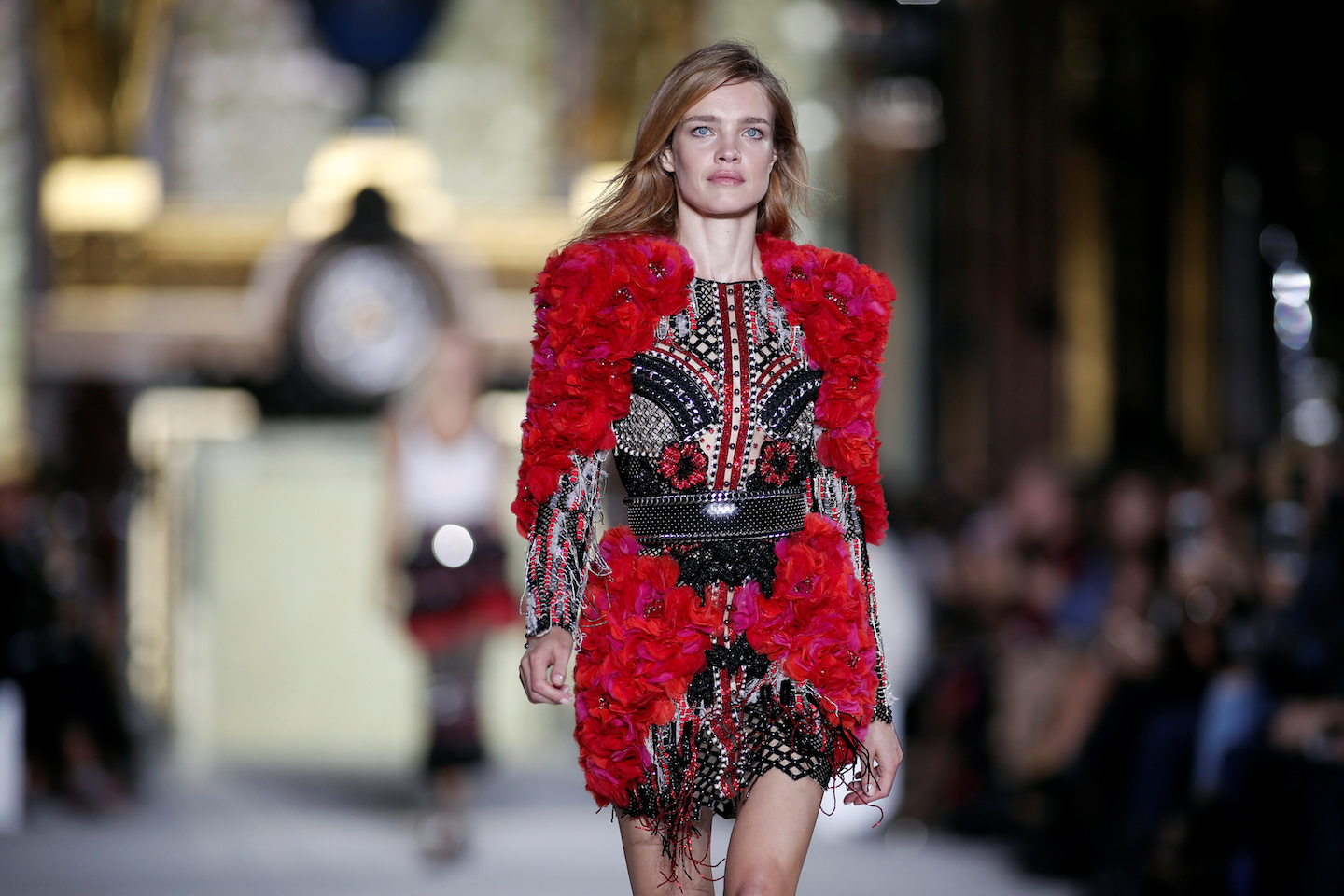
Model and entrepreneur Natalia Vodianova has been nicknamed “Supernova” because of her extraordinary success (Photo: Natalia Vodianova)
Model and entrepreneur Natalia Vodianova has been nicknamed “Supernova” because of her extraordinary success. But the moniker is profoundly apt in its truest meaning. The phenomenon refers to a change in the core of a star that results in a spectacular explosion that flushes it with intense luminosity. According to Nasa, scientists have determined that supernovas play a key role in distributing elements throughout the universe: a fitting description indeed of a philanthropist who constantly seeks to uplift the less fortunate.
Having experienced the extremes of great privilege and poverty, Vodianova can sympathise with those beset by tragedy. She grew up in the sombreness of Soviet-era Russia, helping her mother sell fruit by the age of 11 to feed her two half-sisters, Kristina and Oksana. Her father had walked out on them when she was a toddler and the family struggled to survive while raising Oksana, who had cerebral palsy and autism.
“It does seem almost unbelievable, but it is very much true and it was very hard,” she says, looking across to the well-heeled crowd in the plush Opéra Garnier. Entrepreneurs and industry captains had gathered in Monte Carlo for the 2019 EY World Entrepreneur Of The Year, an annual event that brings the global business community to the Monégasque playground of the rich and famous. Despite the early hour, Vodianova delivers her keynote address to a packed hall with EY global chairman and CEO Mark Weinberger guiding the session.
“We lacked everything in my childhood — including compassion from other people because of my sister. People hated being our neighbours,” she continues frankly. “There was no support around us for special needs and my mother refused to put Oksana in an institution, so we were unable to give her what she needed. If we ever left her alone, she would get all the food and clothes out of the cupboards and mix them up together as though punishing us for leaving her home alone. We would come back and she would be sitting on this messy pile she had created with a huge smile on her face, like she was saying, ‘Well, are you ever going to leave me alone again?’ We can laugh about it now, but it was really difficult at the time.”
In a relaxed white pantsuit that hangs loosely over her lithe frame, and with her expressive face lit with almost child-like enthusiasm, Vodianova looks elegant. The waving tendrils of blonde-brown hair would make anyone else look messy, but she glows with vitality and appears easily a decade younger than her 37 years. Nothing in her childhood prepared her for this life onstage and on catwalks. She grew up wearing shabby, oversized hand-me-downs that won her no friends and did nothing for her self-esteem — until a modelling break when she was 15.
“I stumbled into it, really,” she recalls. “I did some work locally and then I was chosen to go to Paris.”
She turned down three plane tickets her grandmother bought to the City of Love, reluctant to leave her then-boyfriend and a fruit stand business she co-owned. “It was very small but it was there for me and was mine. It felt incredibly hard to take this leap of faith and get on a plane,” she says. “But I did, of course, and I never regretted it. I later appreciated the opportunity to reinvent myself. In Paris, I was no longer a girl who grew up surrounded by shame and stigma. I could talk about my sister and background with pride because it felt like people wanted to support me.
“A good friend of mine suddenly took my hands one day and said, ‘You’re not in Russia anymore, you can smile.’ I asked what he meant and he said, ‘Smile, try to smile, because it’s incredible what happens when you smile. People will smile back at you and you will find many great opportunities just from doing that.’ It changed everything. Some castings were as hard as my life in Russia, queuing up for hours surrounded by these beautiful, confident girls. I felt tiny, like I had absolutely no chance in the casting room, but I would come in after waiting for hours and I would smile.”
---
For the full story, pick up a copy of The Edge Malaysia (Sept 16, 2019) at your nearest news stand. Save by subscribing to us for your print and/or digital copy.


